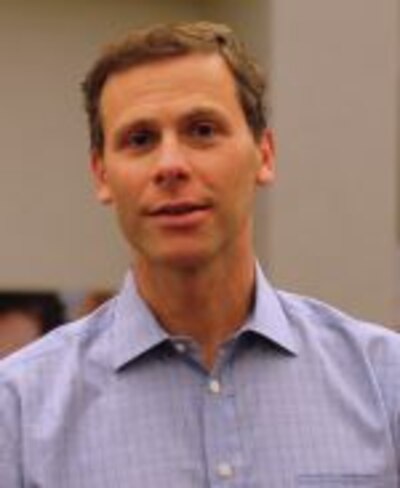Voters may well be asked to open their wallets to strengthen Denver Public Schools in the November 2012 election.
DPS Superintendent Tom Boasberg used a presentation Friday to members of A+ Denver to make his most extensive public comments to date about the likelihood next year of asking for tax increases to build and operate schools.
District voters in November 2008 strongly approved a $454 million bond issue, the largest ever sought by a Colorado school district. Major projects it funded included the Swigert-McAuliffe International School at Stapleton, the Evie Garrett Dennis campus in Green Valley Ranch and extensive renovations at North High School.
Speaking to an audience of about 30 A+ Denver members at St. Cajetan’s Center on the Auraria Campus, Boasberg said it could be time next November to tap taxpayers again.
After spending close to an hour spelling out the many successes he sees in the district’s performance since implementing The Denver Plan in 2005, Boasberg said future progress could come with a price tag. (Read Boasberg’s 2011 State of the Schools report.)
“I think we will be working very closely with Denver residents over the course of the next 12 months in anticipation of going to the ballot in the fall of ’12 for a mill levy, and also for our next bond,” Boasberg said, citing the district’s recent enrollment growth, the need for new schools, critical maintenance needs and long-term capital needs.
“We really look forward to working with A+ Denver and other groups over the course of the next year to really frame the importance of a mill levy and a bond that we would go for.”
In an interview, Boasberg spoke at greater length on the district’s financial future.
“The plan is that we would have an intensive set of discussions and consultations with our community – with our parents, our teachers, our community leaders, our business leaders – about our need for this investment, how to prioritize that investment,” he said.

“And then, we as a district, and the board, would have to make a decision in the summer whether indeed there is a level of community support for that investment that would enable us to put an initiative on the ballot in the fall of ’12.”
Boasberg did not specify dollar figures on any particular areas of need. However, areas that he sees ripe for new funding include preschool programs, full-day kindergarten, strengthening arts and music, and continuing the district’s emphasis on lengthening the school day and the school year.
Colorado voters this November will vote on Proposition 103, which would raise the state income tax to 5 percent from 4.63 percent and the state portion of sales taxes to 3 percent from 2.9 percent for five years, devoting all those new revenues to education.
“Proposition 103 only brings us back to where we were before these cuts started,” said Boasberg, “but it would be extraordinarily helpful to districts in helping provide better opportunities in education for our kids in critical areas.” (Get background on Proposition 103 in the Education News Colorado Election Center 2011.)
But even if passed – and Boasberg hopes that it is – the superintendent doesn’t see Proposition 103 as the answer to all of DPS’s challenges, given the magnitude of recent cuts in state education funding.
“We’ve taken $60 million of budget cuts from the state in the last three years,” Boasberg said at the Friday meeting. “That’s over 10 percent of the money that we get per-pupil from the state. There’s a $500 million projected shortfall in next year’s state budget so early projections are that we will take another 5 percent cut, per student, in our student budget. That’s brutal…these cuts are extraordinarily challenging.”
Van Schoales, executive director of A+ Denver, a non-partisan organization of civic leaders focused on building student achievement, said he was not surprised to hear Boasberg’s pitch.
“Obviously, 103 is going to be a pretty good indicator of where people are” in terms of their receptiveness to additional taxes for schools, he said. “I think that people are hurting, and people recognize in Denver that education is important, and it costs money.”
Boasberg said he believes the 2008 bond program was “an absolute home run,” and asserted that the district has done better than many Colorado districts in weathering the budget storms.
“Where other districts around the state have had furloughs of four to six days for all employees, almost every district has raised class sizes, we’ve had none of that,” he said. “We’ve had no layoffs, we’ve had no furloughs and actually this year we had no increase in class sizes.”
Boasberg added, “There’s a real intense need for a community conversation. Obviously, to go to the ballot in the fall of ’12 is not going to be easy. The economy is still going to be in a very tough situation in the fall of ’12. And we’re going to need to make a very compelling case.”
In addition to Proposition 103, voters in 30 districts around the state are facing requests this year for more than half a billion dollars in increased school taxes. (Get more details in the Election Center.)
